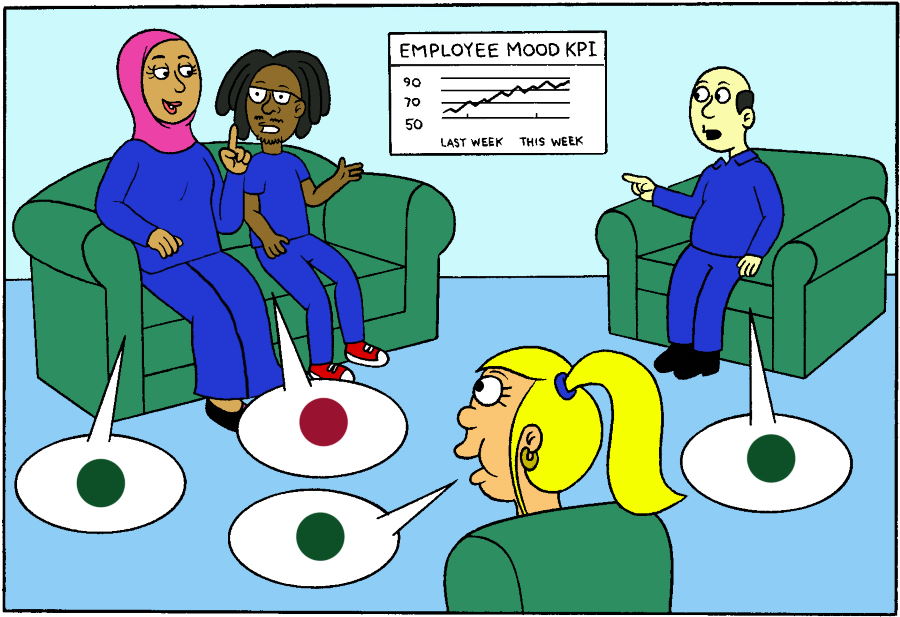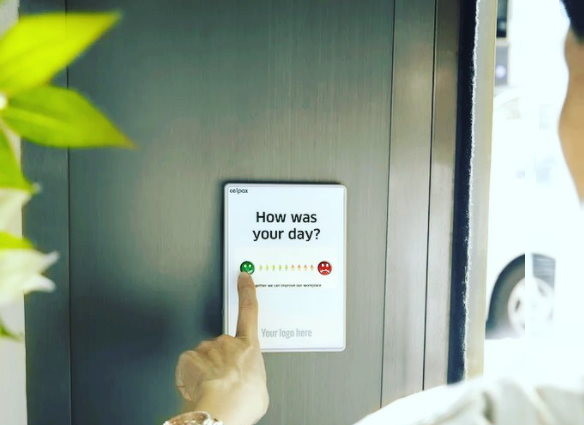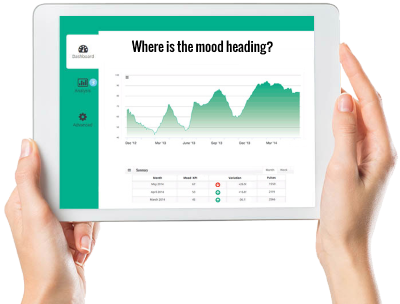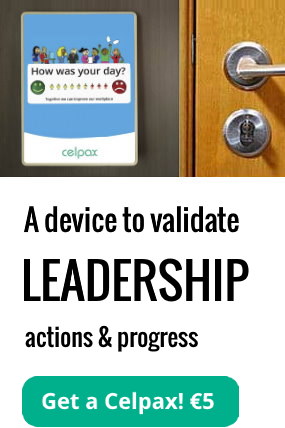Dialogue as a Driving Force to Improve Any Work Environment
Open Dialogue In the Workplace
At work, our processes often become systematic and automatic to gain efficiency.
Because we want efficient teams, right?
Being faster and more efficient at solving tasks often puts dialogue in the background, and it’s easy to lose sight of the important things at work.
In order to do the job well - something that all companies expect of their employees - coworkers have to feel good about the task and understand its purpose.
The company’s leaders also need to continuously talk in order to know their employees’ moods and implement actions that make an impact and improves.
For great managers, these said actions always include asking questions and working together towards fixing a problem.
That being said, having good dialogues in a company or finding a way to bring back the conversations, are key components when it comes to the motivation and retention of your employees.
Improving efficiency, productivity and quality go hand in hand with employee morale.
To be a great business leader, ask open questions, don’t answer them.
Meaningful conversations to make the results of a survey more precise
A dialogue presupposes a meeting between two people who are at the same level, who are interested in the same issue, and who express their ideas around a topic.
In a dialogue, both you as a manager and your coworker express your opinions.
With that, the question-answer format disappears.
Dialogue is spontaneous, informal, a crossroads of reflection if you will!
With traditional surveys - which are systematic and inflexible processes - anonymity is necessary and it’s not possible to talk face to face.
In turn, employees easily become just a number.
On the other hand, if the company culture focuses on fostering open dialogue in the workplace between managers and their teams, the need for yearly surveys is reduced.
It comes more down to measuring the progress and impacts of your continuous improvement process.
If these fluid and open conversations are maintained, employees’ approach to them will be more personal.
They will be more involved in responding and bringing forward their opinions.
And make the decision to define the “best” way forward for your business.
Over time, the overall results will be more honest and relevant.
Trust breeds trust.
Simply put, if you do your part as a leader and open up the conversations, most people will happily join you.

Simplicity
Line managers have an important role to play, and you set the tone and trend.
It comes down to you, as a leader, to establish open communication channels with your team members.
To actively listen to your employees and their feedback.
Create a culture of listening!
Those where you listen to actually listen, instead of just listening to respond.
Take an interest in the actual person you have in front of you.
Do you hire the whole person at work? Or you couldn’t give a damn if that person is going through a divorce, or has a loved one that is struggling?
Show him or her you care. How is your day going?
How are things lately? What did you do last weekend?
Then you can move on to more work-related matters.
First, use this great conversation starter, which shows where you’re coming from:
“What is it you need to do your job here?”
Next, follow-up with “What prevents you from getting your work done?”
Then you take action, based on the reactions and feedback from your employees.
The action or next step can be small.
The important thing is that some kind of action happens, continuously.
It doesn’t have to be more complicated than this.
- Related: 8 Fun Ideas For Employee Engagement
Open dialogue in the workplace to find agreements
Open and transparent dialogue between more people in a company is often the only way to modify the existing negative dynamics.
Business success depends on coworkers at all levels.
The purpose of open dialogue in the workplace isn’t just about trying to solve a business problem.
Nor just about trying to solve a problem or clear issues.
Honest conversations let you explore different ways to find out the best course of action - for all people involved.
Many times improvement happens because these honest and open conversations take place on a regular basis, it’s not so much about innovative solutions coming up.
When people feel it’s “safe” to speak up, magic happens among your team.
How do you as a leader react when a coworker brings up negative things at work?
People don’t give feedback hoping to be scolded or get a sigh as a reply. Next time you ask for a conversation, no one will open their mouth to let you know how their feeling at work.
Because why bother? The risk is too high, you don’t want to hear it anyway, will be their reaction.
Give to Get
Here’s a challenge for you:
Connect with your people through your weaknesses.
Share a story of where you did a mistake, or fell short of something in the past.
Be transparent and honest! This builds trust.
Research shows that this will make your team more prone to share feedback and ideas, as it shows that you’re human too. Not some super-leader that never commits errors. We all still make mistakes!
Let’s learn from them and grow, together, as a team.
Open dialogue is the tool to find agreements between what is possible and what isn’t.
It is the way to make employees understand the company’s desire to improve things, the open door to discovering solutions.
If this desire is not communicated to the employees, it doesn’t exist for them.
The absence of conversations means that conflicts stick around for a longer time.
And that has a negative impact on your financial results.
It prevents people from sharing different opinions on a certain issue and increases negativity and a negative mood at work.
Daily 10 minute meetings
Many successful leaders use daily huddles, or shift meetings, to quickly check-in with their team each day.
More leadership skills examples here.
Dialogue is the basis of respect. It shows a willingness to listen and understand the other, as well as a willingness to solve problems.
The result from these conversations and open dialogue in the workplace is transformation.
Which is a change that everyone wants in order to better their workplace, right?
Be kind, honest, and keep the conversations going, and business results are sure to follow.
What’s the impact of starting an open dialogue in the workplace?
Measure the impact of your leadership actions with a Celpax device.
Similar interests
- Non Gamstop Casinos UK
- Slot Sites UK
- New Betting Sites UK
- Casinos Not On Gamstop
- Gambling Sites Not On Gamstop
- Casino Non Aams Sicuri
- UK Online Casinos Not On Gamstop
- Gambling Sites Not On Gamstop
- Sites Not On Gamstop
- Sites Not On Gamstop
- Non Gamstop Casino Sites UK
- Best Online Casino Canada
- UK Casino Not On Gamstop
- Non Gamstop Casinos
- Casinos Not On Gamstop
- Siti Scommesse
- Top Casino Sites UK
- Slots Not On Gamstop
- Casino En Ligne Meilleur Site
- Casinos Not On Gamstop
- Betting Sites UK
- Slots Not On Gamstop
- UK Casino Not On Gamstop
- Migliori Casino Online Non Aams
- Non Gamstop Casino UK
- Lista Casino Online Non Aams
- Meilleur Casino En Ligne
- Best Crypto Casino
- Casino En Ligne
- Casino Online
- Casino En Ligne France
- Paris Sportif Ufc
- Casino Jeux En Ligne
- Meilleur Casino En Ligne
- Bonus Free Spin Senza Deposito
- Casinò Non Aams Con Free Spin Senza Deposito
- Nuovi Casino Non Aams
- Migliori Casino Online
- Crypto Casino
- Casino Non Aams





